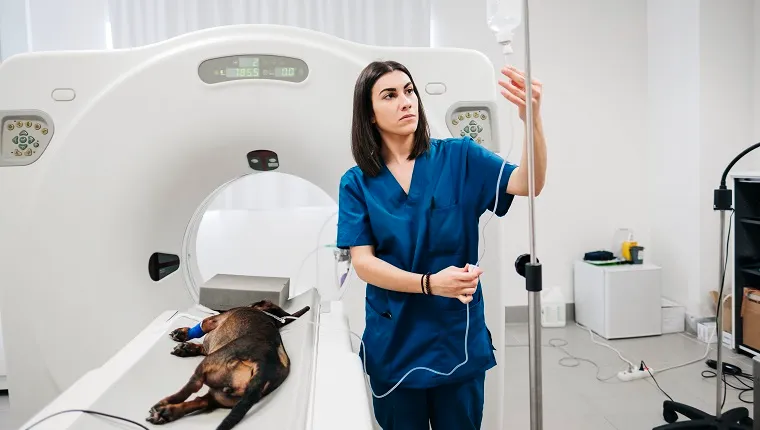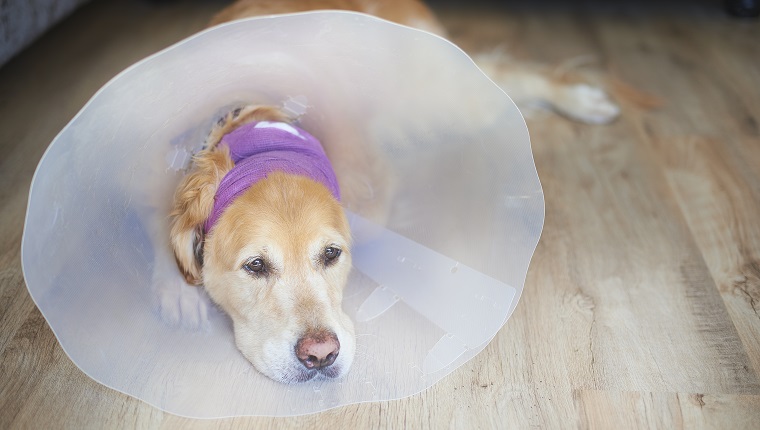Brain injuries in dogs can take two forms: Primary injuries and secondary injuries.
A primary brain injury often results from trauma. A secondary brain injury follows on from a primary injury and can affect a dog’s brain tissue.
If you see signs that your dog might be suffering from a brain injury, then you must consult your veterinarian for a proper diagnosis and course of treatment. Here’s what you should know about the symptoms, causes, and treatments of brain injuries in dogs.
Symptoms Of Brain Injury In Dogs
Brain injuries in dogs can result in a wide range of symptoms depending on exactly how the brain has been affected. Some of the most common symptoms include:
- Losing consciousness
- Seizure
- Fever
- Low body temperature
- Breathing quickly and heavily
- Very low heart rate
- Bleeding from the nose or ear
- Skin turning a shade of blue (known as cyanosis)
- Blood present in the eye
Causes Of Brain Injury In Dogs

There are many potential causes of brain injuries for dogs. Some of the most frequent causes include:
- Direct trauma to the head (such as a car accident)
- Seizures
- Parasites in the brain
- Nervous system infection
- Hypothermia
- High blood pressure
- Hyperthermia
- Exposure to toxins
Veterinary Treatments
If you worry that your dog has suffered a brain injury, then your veterinarian will want to carry out a fully physical examination along with asking questions about any recent incidents that might have prompted the injury.
The vet will order blood and urine tests, and they may also use X-rays, CT scans, and MRI scans to examine the skull if they suspect trauma has occurred. Additionally, they may use an electrocardiogram (ECG) to analyze any issues with the heart.
When it comes to treatment, the condition is usually considered to be an emergency that requires hospitalization. Correcting any issues with your dog’s body temperature, oxygen levels, and heart rate will be key, as well as adjusting the pressure placed on the skull.
Your dog may also need intravenous fluid as part of treatment process, and the vet may consider a feeding tube to ensure that your dog receives adequate nutrition.
While your dog recovers at home, it is essential that you keep up regular visits with their vet to monitor your dog’s progress.
Has your dog ever suffered a brain injury? How did your vet help your canine recover? Tell us all about it in the comments below.









